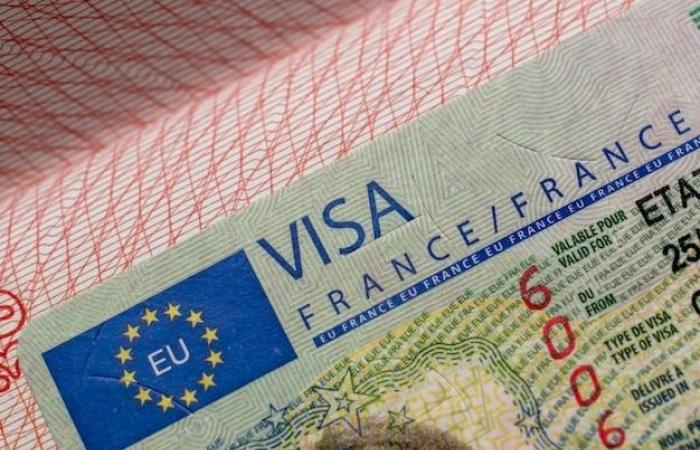Between 2015 and 2025, France would have received nearly 243.6 million euros only through the rejected Schengen visa requests.
An impressive figure, all the more striking that it only concerns requests not accepted.
Converted into African currency, this represents more than 159.8 billion CFA francs (€ 1 ≈ 655.957 FCFA).
These costs, systematically non -refundable, are paid by thousands of applicants, mainly from African countries, who see their visa refused without compensation.
This mechanism arouses a feeling of growing injustice: not only is access to Europe refused to them, but it is with their own financial means that they contribute, involuntarily, to finance a system that excludes them.
The available data shows a constant increase in the number of refusals, with significant peaks in recent years:
2024: 3,486,275 requests recorded, 578,687 refused, according to the French Ministry of the Interior.
2023: 2,972,988 requests, 506,611 refused.
2021: 982 143 requests, including 194 181 refused.
2017–2019: annual average of 4.3 million requests, with between 537,000 and 686,000 refusals each year.
The gradual rise in visa costs accentuates this dynamic.
In 2020, the cost of a Schengen visa increased from 60 to 80 €, then to € 90 in 2024, increasing the loss suffered by the failed applicants.
In 2023 on its own, African applicants lost around 56.3 million euros due to Schengen visa discharges, or more than 36.9 billion FCFA.
This loss represents a considerable charge for households already faced with major economic challenges.
Here is the estimated distribution of losses by country:
Algeria: 166,200 refusals → 13 million euros, or around 8.53 billion FCFA
Morocco: 136,300 refusals → 11 million euros, or around 7.21 billion FCFA
Egypt: around 3.7 million euros, or around 2.43 billion FCFA
Nigeria: around 3.4 million euros, or around 2.23 billion FCFA
Tunisia: around 3.1 million euros, or around 2.03 billion FCFA
Senegal: around 2.11 million euros, or around 1.38 billion FCFA
These amounts concern only short stay visas (type C), mainly tourist or family.
What some already describe as “business frustration business” highlights an unlikely reality: European countries, including France, benefit financially from visa discharges, without obligation to justify or reimburse.
A situation all the more delicate when it affects African populations in search of opportunities, often rejected at a disproportionate rate.
Should Europe reimburse the costs in the event of refusal?
Dr Claudel NOUBISSIY








